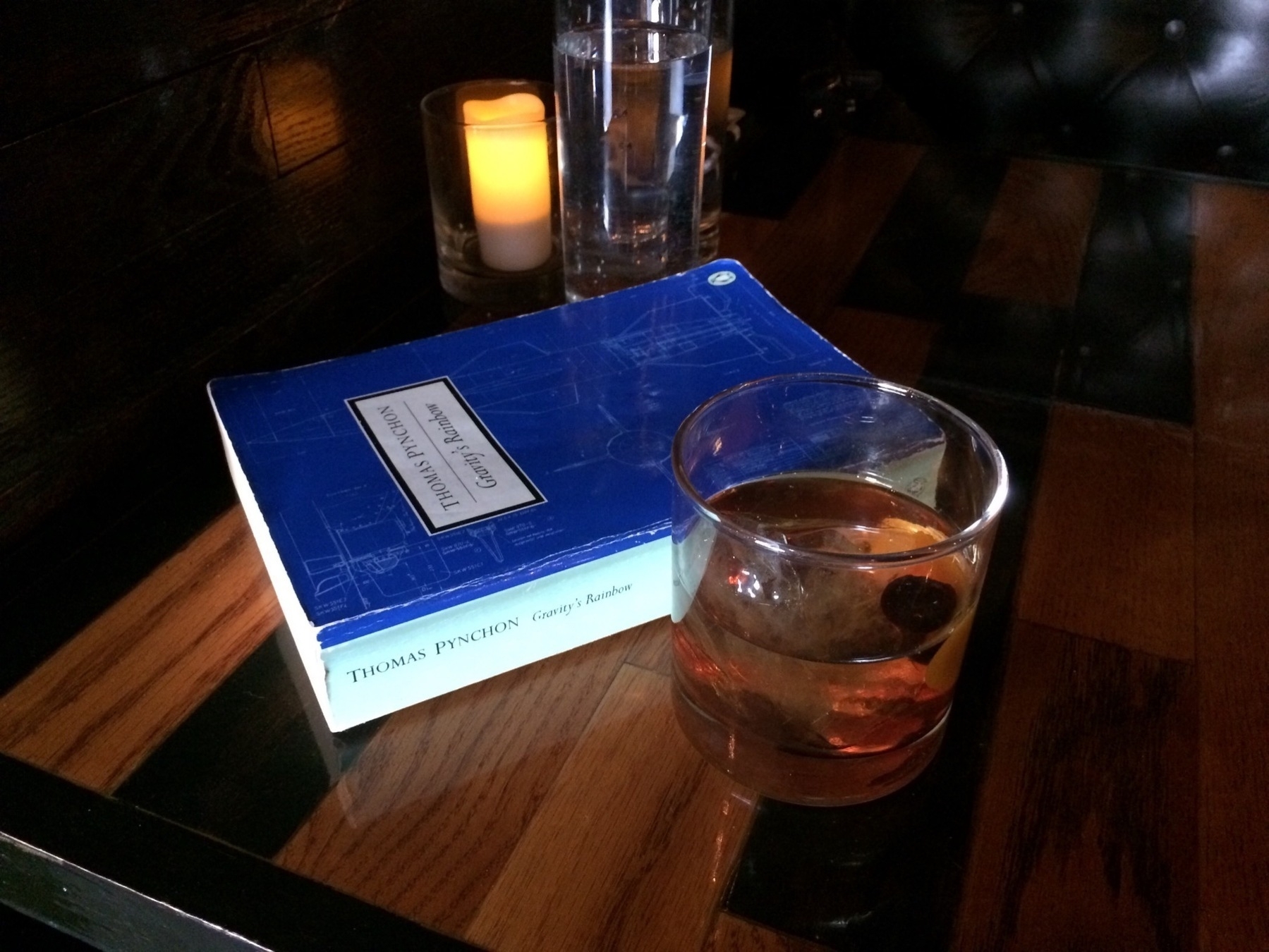Happy 50th to Gravity’s Rainbow.

Happy 50th to Gravity’s Rainbow.

Thomas Pynchon, Against the Day (pp 1000–01):
“We will buy it all up,” making the expected arm gesture, “all this country. Money speaks, the land listens, where the Anarchist skulked, where the horse-thief plied his trade, we fishers of Americans will cast our nets of perfect ten-acre mesh, leveled and varmint-proofed, ready to build on. Where alien muckers and jackers went creeping after their miserable communistic dreams, the good lowland townsfolk will come up by the netful into these hills, clean, industrious, Christian, while we, gazing out over their little vacation bungalows, will dwell in top-dollar palazzos befitting our station, which their mortgage money will be paying to build for us. When the scars of these battles have long faded, and the tailings are covered in bunchgrass and wildflowers, and the coming of the snows is no longer the year’s curse but its promise, awaited eagerly for its influx of moneyed seekers after wintertime recreation, when the shining strands of telpherage have subdued every mountainside, and all is festival and wholesome sport and eugenically-chosen stock, who will be left anymore to remember the jabbering Union scum, the frozen corpses whose names, false in any case, have gone forever unrecorded? who will care that once men fought as if an eight-hour day, a few coins more at the end of the week, were everything, were worth the merciless wind beneath the shabby roof, the tears freezing on a woman’s face worn to dark Indian stupor before its time, the whining of children whose maws were never satisfied, whose future, those who survived, was always to toil for us, to fetch and feed and nurse, to ride the far fences of our properties, to stand watch between us and those who would intrude or question?” He might usually have taken a look at Foley, attentive back in the shadows. But Scarsdale did not seek out the eyes of his old faithful sidekick. He seldom did anymore. “Anarchism will pass, its race will degenerate into silence, but money will beget money, grow like the bluebells in the meadow, spread and brighten and gather force, and bring low all before it. It is simple. It is inevitable. It has begun.”
Thomas Pynchon, Gravity’s Rainbow:
Don’t forget the real business of war is buying and selling. The murdering and violence are self-policing, and can be entrusted to non-professionals. The mass nature of wartime death is useful in many ways. It serves as spectacle, as diversion from the real movements of the War. It provides raw material to be recorded into History, so that children may be taught History as sequences of violence, battle after battle, and be more prepared for the adult world. Best of all, mass death’s a stimulus to just ordinary folks, little fellows, to try ’n’ grab a piece of that Pie while they’re still here to gobble it up. The true war is a celebration of markets.
Thomas Pynchon, Gravity’s Rainbow:
In one of these streets, in the morning fog, plastered over two slippery cobblestones, is a scrap of newspaper headline, with a wirephoto of a giant white cock, dangling in the sky straight downward out of a white pubic bush. The letters
MB DRO ROSHI
appear above with the logo of some occupation newspaper, a grinning glamour girl riding astraddle the cannon of a tank, steel penis with slotted serpent head, 3rd Armored treads ’n’ triangle on a sweater rippling across her tits. The white image has the same coherence, the hey-lookit-me smugness, as the Cross does. It is not only a sudden white genital onset in the sky — it is also, perhaps, a Tree…
Happy 85th to Thomas Pynchon!
I’m not going out today (too much to do at home) so here’s a photo from a previous Pynchon in Public Day—

—at the excellent Volstead Speakeasy in (of all places) Eagan.

Keep cool but care.
If they can get you asking the wrong questions, they don’t have to worry about answers.
—Thomas Pynchon, born on this day in 1937, and who’s been sporting a face mask for years:

In an attempt to slow down in my reading of ATD, I have been trying to distract myself in some way. But why should I want to try to slow down at all? Well, it is entirely possible that I was not in my right mind when I made the decision, but just before the blessed holiday season, I came to the conclusion that I needed to slow down on my reading of that vast tome because, well… Because as I approached the eponymously named Part 4, I felt as if I were engaged in a car chase from some hit action show in the 1970s, in which the laws of physics are ignored with blithe condescension.
Here’s a thought I just had. To collate and then read all of Pynchon’s works chronologically. It would go something like this: GR flashbacks of Katje’s ancestor, Franz van der Groov, on Mauritius (1750s) M&D (1761–69, 1786) ATD and then the flashback sections of V interleaved, leading up to the prewar sections of GR (1893–1944) the bulk of GR (1944–1945) the rest of V (1951–52) L49 (±1965) the middle of Vineland (±1969) (Inherent Vice (1971)) the L.
I highly recommend this review. It is spoilerish, if that’s a concern as you read through Against The Day yourself. This is exactly how it feels to trawl and drift through the book: There is no narrator quite like Pynchon. The other evening I was up late with this book and it hit me, there in the deep quiet after everyone had gone to bed, that he’s really most like an all-night DJ, spinning his favorites, talking about them, riffing on this and that and not really caring too hard who’s listening.
Okay, so Pynchon’s newest is now listed at Amazon as having 1120 pages, rather than the 992 as previously reported. I finished MD. It was magnificent. Once Mason & Dixon begin the work of drawing the Line, the story takes several staggering turns, involving (among many other things) various nested fictions, not unlike The Saragossa Manuscript. There has only been a handful of books that, when I finish them, I have a nearly uncontrollable urge to start over again from the beginning.